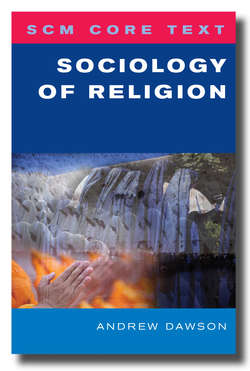Читать книгу SCM Core Text Sociology of Religion - Andrew Dawson - Страница 46
На сайте Литреса книга снята с продажи.
Karl Marx (1818–83)
ОглавлениеTechnically speaking, Marx was not a sociologist. His contribution to the sociological tradition, however, is beyond dispute. Marx wrote at a time when the first major reverberations of the industrial revolution were being felt across Europe and North America. For a variety of reasons, Marx’s writings were not widely published and became something of a niche concern among radical activists and left-leaning intellectuals. Despite the Bolshevik revolution of 1917, it was not until later in the twentieth century that Marx’s writings began to receive widespread interest. Although already gaining popularity among certain sections of the sociological community, it was the cultural revolutions of the 1960s which established Marx as de rigueur reading for all aspiring sociologists. Now an unquestioned part of the sociological canon, Marx’s work – or theoretical strands thereof – can be credited with informing many of the presuppositions which underwrite the emancipatory approaches (such as feminist theory and postcolonial studies) so popular today (see Chapter 6).
Born in Germany to middle-class Jewish parents in 1818, Marx received his doctorate in philosophy from the University of Berlin in 1841. Attempting to understand the macro-structural and institutional implications of the widespread and rapid urban-industrialization taking place, Marx employed and/or adapted a range of philosophical, political and economic theories which both articulated and informed his radical social values. Indeed, it was these radical values which resulted in his flight from state persecution in various European countries and his eventual settling in England, where he remained until his death in 1883 (McLellan, 1973).
Up until the late 1840s, Marx engaged in sustained philosophical critique of the political and social implications of particular interpretations of German idealist traditions. Taking their lead from the German philosopher G. W. Hegel (1770–1831), proponents of idealism regarded ideas as the driving force of historical change. In so doing, idealists believed that socio-cultural and economic-political change could be explained and thereby managed through philosophical understanding of both the dominant ideas of an age and the manner in which these ideas express themselves relative to the epoch in question. As they regarded religion (here, Christianity) as a dominant idea which manifests itself through prevailing societal structures – not least those of the state apparatus – idealists believed that the correct understanding of religion would yield an insightful critique of the socio-cultural processes and economic-political structures through which it is expressed. Social critique, then, is founded on philosophical understanding of otherwise abstract ideas, the essence of which can be captured independently of the concrete historical forms these ideas assume in any given time or place.
It was during his engagement with and eventual break from German idealism that Marx wrote most of his sporadic and otherwise unsystematic comments upon religion. Consequently, the majority of Marx’s remarks upon religion are found in his Contribution to the Critique of Hegel’s Philosophy of Right (1844), German Ideology (1845/6) and the co-authored Communist Manifesto (1848). After this time Marx turned his attention to understanding the overarching structural conditions and concrete productive processes allied with the industrial revolution and the age of capitalism (for example privately owned business, wage–labour dynamics and the class structure). Exemplified by the multivolume Capital (1867–), this period has very little by way of explicit religious critique.1
